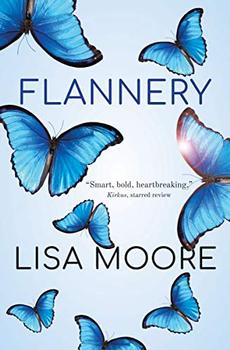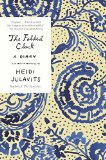Summary | Excerpt | Reviews | Beyond the book | Read-Alikes | Genres & Themes | Author Bio

I loved this book. If I'd read this book when I was 14, I would have written that with capital letters and exclamation points, the page soggy with tears. Remember when you could read a book and feel like it was written just for you? That the author was writing about your own private world, your singular thoughts, the startlingly originality of you and your friends? The feeling is absolutely thrilling, but it fades as we grow older and (hopefully) less self-centered, and realize that emotions are universal and uniqueness is dime-a-dozen. I treasure Why We Broke Up for reminding me of those teenage feelings, of the crushes and romances, the delights and disastrous mistakes that shaped my young self. I can only imagine what it would have been like to have read this book then - what a rare gift a book like this can be to the raw emotional life of a young teenage girl.
The novel opens with an illustration of a blue cardboard box, followed by the beginning of Min's letter to Ed. She tells their story through her reflections on each object she saved during their brief romance. It's all there - the tentative first sort-of-date, the giddy rush of nerves and electricity, the too-bright light of high school hallways after a thrilling late-night phone call. Daniel Handler (a.k.a. Lemony Snicket) performs a kind of magic in channeling the voice of a 15-year-old girl with crackling dry wit, and it's this voice that makes the book what it is. Min's narration spills over with adverbs, paragraph-long sentences, and searing emotional authenticity, slathered in details that you'd think only a teenage girl could know. The flow and bounce and banter of the dialogue and of Min's internal voice remind me of a mix between John Hughes and Aaron Sorkin, with a dash of old movies like The Thin Man, and His Girl Friday. Do any teenagers really talk or think like this? Maybe not, but I'd like to think that we did, and so will younger readers.
Maira Kalman's illustrations at the beginning of each chapter are a lovely match for Handler's writing. Her visible and expressive paint strokes make the objects feel affectionately worn and treasured. Paired with her wavering hand-lettering, delicate shadows, and touch of photographic realism, objects like a sugar-shaker from a diner take on a luminous emotional quality that brought me back to gaze at them again and again - just as Min must have.
The qualities that make it so hard to be a teenager are also the reasons why they are such ripe receptors for fiction; they're gravely serious, they understand true drama, and they experience emotions with crushing severity. If you start reading Why We Broke Up, and it feels too over-the-top for you, I urge you to pass it along to a 13- or 14-year-old girl. Her emotions are full to the brim and aching for somewhere to go. A book seems like a nice safe place, no?
Additional Info
Daniel Handler has created a fabulous online forum he calls the Why We Broke Up project, where dumpers and dumpees around the globe can share their stories. He writes, "Our hope is that the Why We Broke Up project will enable all of our heartbreak to reach critical mass, so that, unlike [name redacted], it will never bother us again."
To get the gushy details about other people's breakups or to share your own, visit www.whywebrokeupproject.tumblr.com.
![]() This review was originally published in The BookBrowse Review in January 2012, and has been updated for the
January 2014 edition.
Click here to go to this issue.
This review was originally published in The BookBrowse Review in January 2012, and has been updated for the
January 2014 edition.
Click here to go to this issue.

If you liked Why We Broke Up, try these:

by Lisa Moore
Published 2019
Written in Lisa Moore's exuberant and inimitable style, Flannery is by turns heartbreaking and hilarious, empowering and harrowing often all on the same page. It is a novel whose spell no reader will be able to resist.

by Heidi Julavits
Published 2016
A raucous, stunningly candid, deliriously smart diary of two years in the life of the incomparable Heidi Julavits
Your guide toexceptional books
BookBrowse seeks out and recommends the best in contemporary fiction and nonfiction—books that not only engage and entertain but also deepen our understanding of ourselves and the world around us.